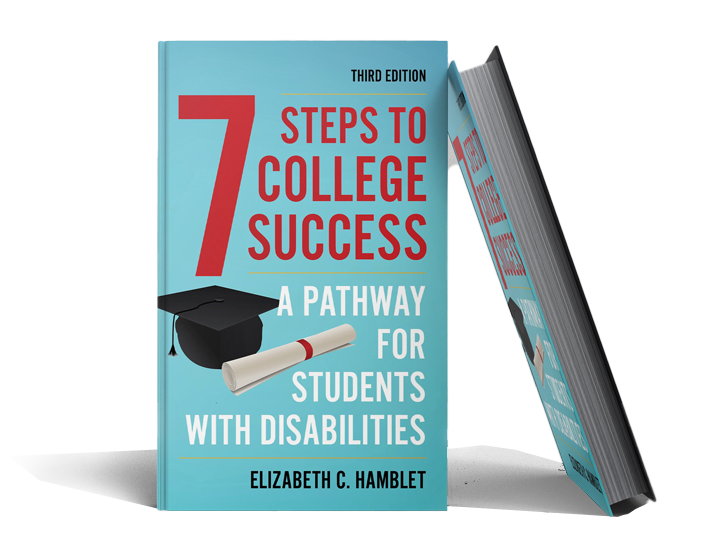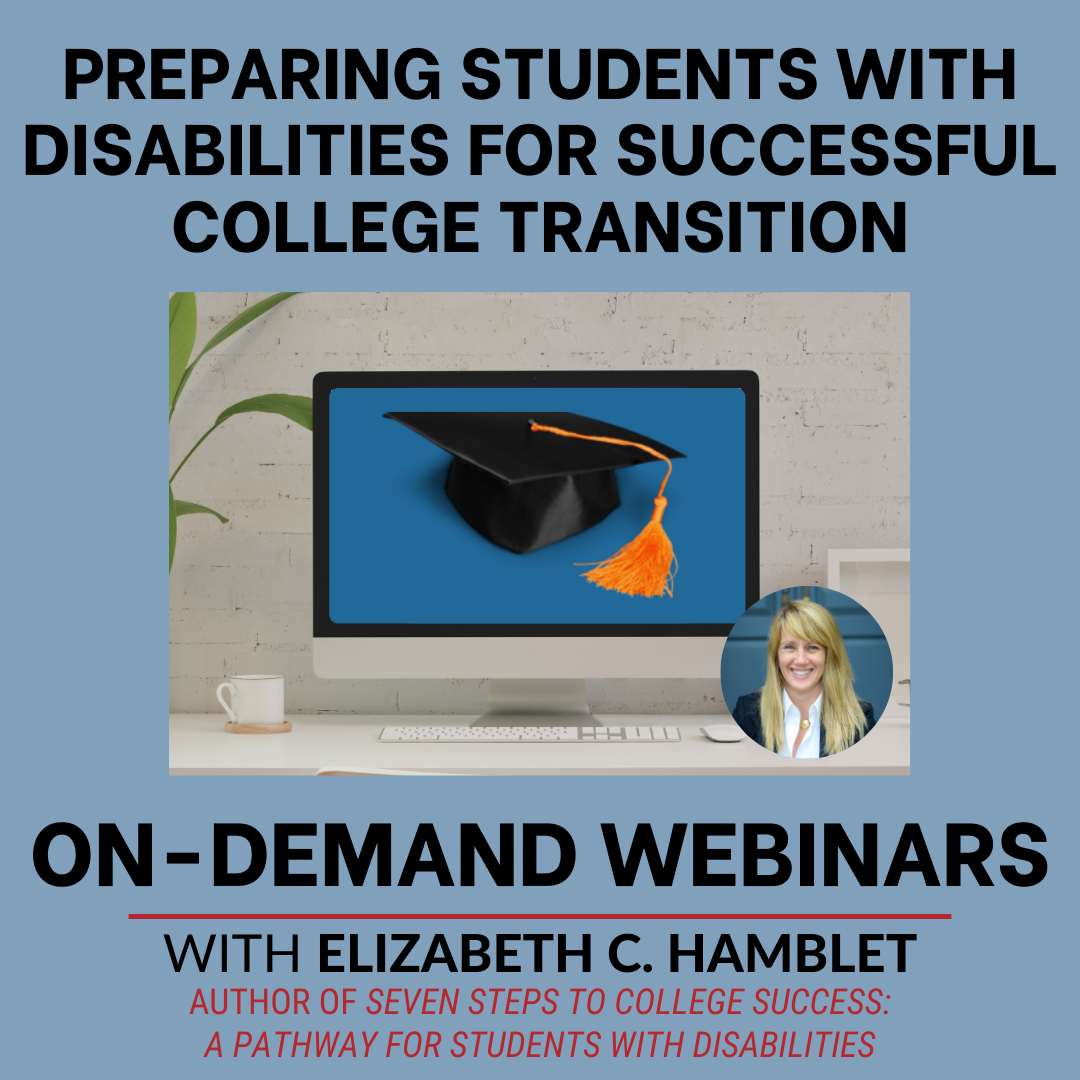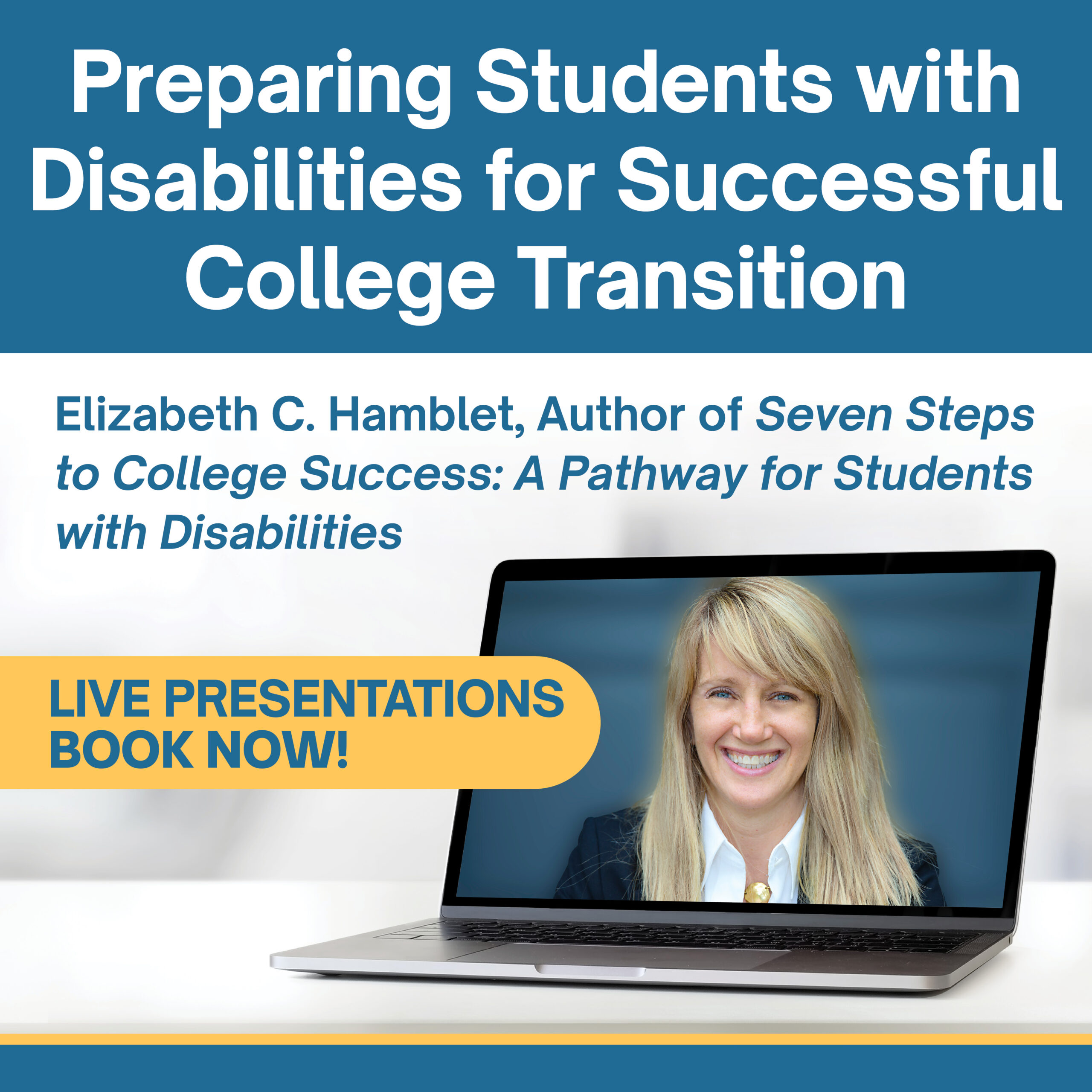Introduction:
Students with disabilities should know that colleges have to provide certain basic accommodations to students found eligible for them. While many students will have all of their requests approved, some will not. There can be a variety of explanations.
Why Accommodations May Not Be Approved by the Disability Services Office
Some students may be told that:
- their documentation doesn’t meet the requirements. Before students register with the disability services office (DS), they can look at the requirements to see what they need (read how to find them here or watch this video). If students don’t have what is needed when they are ready to register, they should go through the process anyway. DS may show flexibility and approve them for permanent accommodations anyway, or they may grant temporary accommodations for a time so they can get the necessary testing or paperwork. (Colleges don’t have to provide or pay for any needed testing. Students have to do this on their own. Here are ideas for getting tested at a reduced fee)
- their paperwork meets requirements but they aren’t eligible for accommodations because it doesn’t demonstrate that they have a substantial limitation in their functioning. This may happen if students’ scores on LD testing are all in the average or above average range. Or it may happen if only one subtest score is weak and the rest are average or above average. In some cases, further testing with additional measures can help to uncover the weakness, but this isn’t always the case
- they are eligible but some of their requests aren’t relevant to their disability
- they are eligible but some of their requested accommodations are not ones college have to provide
What Students Can Do if DS Says No to a Requested Accommodation
In all of these situations, students should have the option to appeal the decision. There’s a chance that DS will make a different decision, though students shouldn’t rely on this. (A lot depends upon why the accommodation was denied.) But they can exercise this option. Students should be able to find the process for filing an appeal on the DS webpage.
If students prefer not to use the college’s process for appeal, they can contact their regional Office for Civil Rights (OCR). OCR processes tend to take longer than colleges’ own processes.
What If Professors Say No to An Approved Accommodation or Students Are Worried About How They Want to Implement Them?
Many DS offices suggest that – at the start of every semester – students talk to their professors about their approved accommodations. Though some people interpret this suggestion incorrectly, it’s not that DS is asking students to negotiate their accommodations with professors. Rather, they want to make sure students talk to professors about how the accommodations will work. For instance, some professors prefer to administer their exams to students and provide the approved accommodations themselves instead of having students take their exams with DS. (They are allowed to do this.)
At the time they’re approved for accommodations, students should ask their DS contact what to do if a professor says they can’t have an approved accommodation or they’re uncomfortable with the way the professor wants to implement it. If they don’t understand what the DS contact person says, they should ask for clarification. It can be a good idea for students to send an email to their DS contact person stating what they understood DS told to do in case of a problem, and ask them to correct anything they got wrong or that they left out. (And to save a copy of that message and any emails that follow in the chain.)
Once students talk to their professors, they should do whatever the DS contact person said if there are any issues. They should remember they’re not required to negotiate or argue with their professor about anything. They should notify DS as soon as possible to see how DS wants to proceed. (At this point, it should be the DS contact person’s job to communicate with the professor about the accommodations that have been approved.)
If students don’t talk to DS about what to do in case of a problem AND/OR they don’t talk to professors about accommodations at the start of the tem, as suggested, they may not hear about a professor’s objections until the day of an exam, when a paper is due, etc. Understandably, this can put the student in a challenging position, e.g., having to decide whether to take an exam without accomomdations or refuse to take it while they try to contact DS in that moment (DS may be tied up and unavailable to solve the probleem at that time). This is why DS offices want students to have the talk in advance.
It’s important for students to know that professors don’t get to decide on their own what accommodations are allowed in their class, but they may not know this. (Universities may not provide training for professors about the disability services process or may provide it but not make it mandatory.)
*This post is for educational purposes. It is not legal or medical advice and should not be viewed as such. Please contact a qualified professional if you need such counsel.




